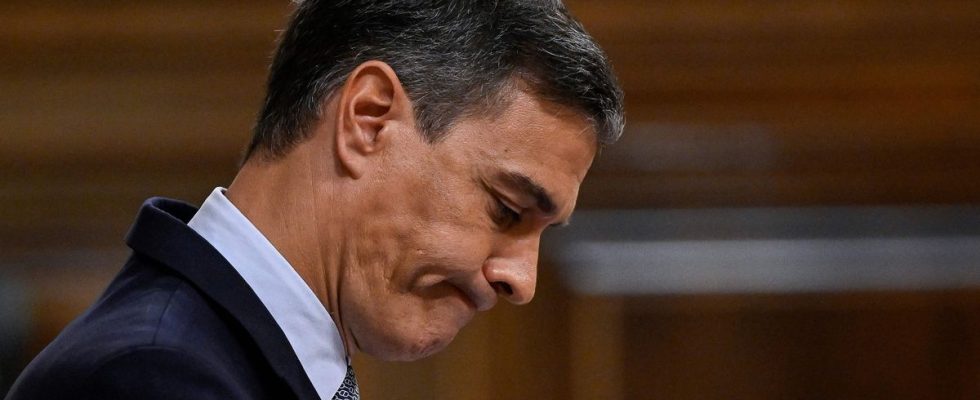Pedro Sanchez attempted a political gamble on Monday. The Spanish Socialist Prime Minister has called early legislative elections, a risky bet to try to stay in power after the conservatives’ victory in a double municipal and regional election on Sunday.
Seriously, he announced, from the seat of government, his decision to “dissolve Parliament and proceed with the calling of general elections”. These will take place “on Sunday July 23”, i.e. during the semester of the Spanish presidency of the European Council which begins on July 1, added the socialist, in power since 2018.
Sanchez “assumes” the setback in the local elections
“I took this decision in view of the results of yesterday’s elections”, said Pedro Sanchez, while the legislative elections were initially to be held at the end of the year, on a date which had not yet been announced. fixed. “As president of the government and as secretary general of the Socialist Party, I assume (responsibility for) the results and I think that it is necessary to give an answer and to submit our democratic mandate to the popular will”.
Weakened by the wear and tear of power and the decline in the purchasing power of the Spaniards, the socialist suffered a bitter setback during the municipal and regional elections on Sunday that the conservatives of the Popular Party (PP) had wanted to transform into an anti-Sanchez referendum. . Overtaken for months in the polls by the PP, his image has also suffered from the recurring tensions between the Socialists and their partners in the Podemos (radical left) within the government. He was also criticized, sometimes even in his camp, for his alliances with the Catalan or Basque separatists.
Socialists bank on fear of the far right
Of the 10 regions governed by the socialists, directly or as part of a coalition, which were at stake on Sunday, the People’s Party won six. It has also strengthened its two regional bastions of Madrid and Murcia and has taken the town halls of Valencia and Seville, the country’s third and fourth largest cities, to the left.
The right-wing party will however need the support of Vox, a far-right party, to be able to govern in almost all the regions it has conquered, but also – according to the polls – at the national level after the legislative elections. he wins them. A problematic equation for the PP, which tries to project a moderate image and which has already been embarrassed by the positions taken by the ultranationalist formation in Castile and León, the only region where the two formations govern together.
To succeed in his bet in July, the Prime Minister also thinks he can take advantage of the fear of the far right. He intends to “mobilize left-wing voters against a potential PP-Vox government at the national level,” said Antonio Barroso, analyst at Teneo.

